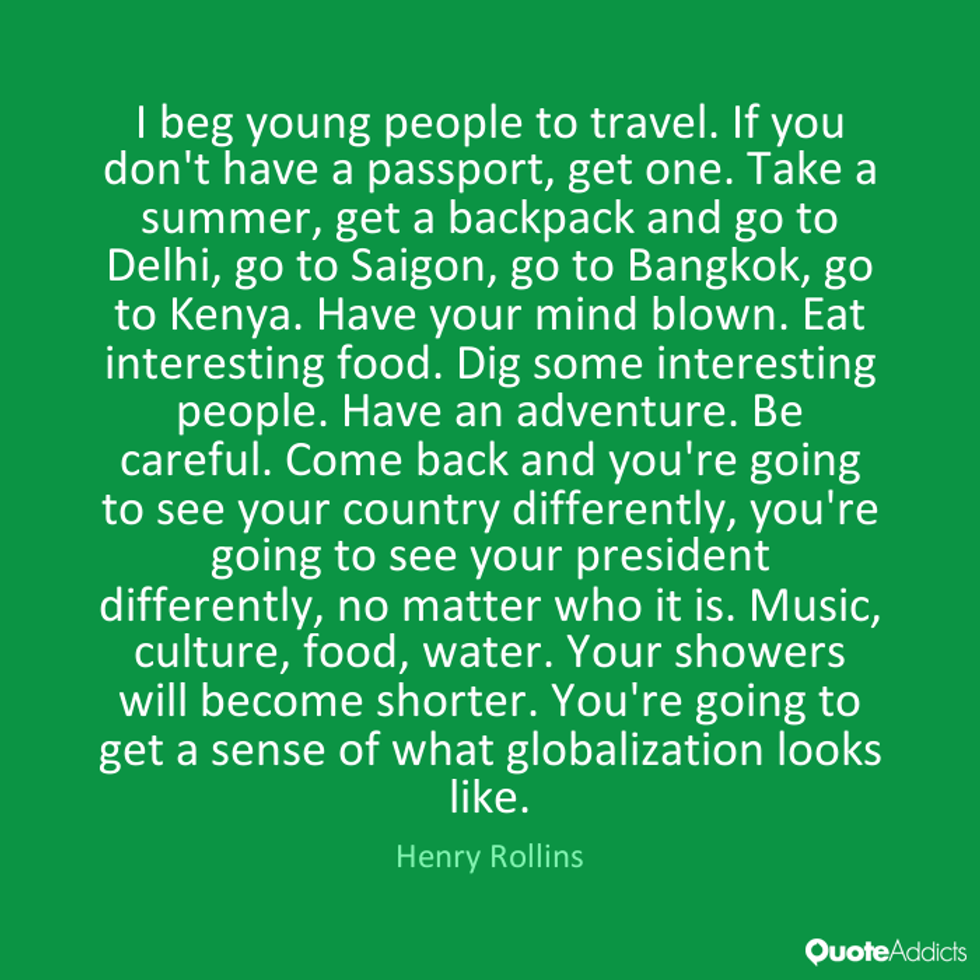With the upcoming election, it seems like every time I turn on the news or read an online article, people are talking about politics. Many have been thinking about what this election will mean for the United States. Before going abroad for this semester, I didn’t really think about how travel would change the lens that I would understand both the election and politics through. People I meet on the street will ask me whether I am voting for Donald Trump and if I agree with Hilary’s policies. Being in India has given me a new perspective on politics and on the idea of America and how people make sense of nationalities. In light of this, I have started to wonder how many Americans are actually proud of their nationality, and what aspects of this role are celebrated and devalued.
One of the first things that people ask when they meet someone new is, “Where are you from?” Nationality is a symbolic tool that people use to place individuals into certain categories and to make sense of identity. It has power and meaning in almost every society around the world and it differentiates people based on much more than geography. When I tell the people that I meet in India that I am from the United States, they automatically have assumptions, like the fact that I probably can’t speak Hindi, I will not be able to handle spicy food, I love Obama, and I have a massive carbon footprint. Nationalities come with stereotypes attached to them and the assumptions that people make about America will differ based on each country’s and individual’s worldview. What it means to be “American” or “Indian” or “French” has become so convoluted that there is no consensus on whether someone’s nationality has any affect on their personality at all.
I don’t know how many times I have heard the phrase, “If Donald Trump gets elected I’ll just become Canadian." Yet, many people that I have talked to about politics in India feel that Donald Trump is harmless in comparison to some of the leaders that have shaped India’s political and social sphere. One student from my study abroad program explained to me that Americans assume they can just seek refuge and livelihood anywhere in the world, whereas other countries do not feel this same entitlement, not to mention the history of immigration laws in the United States. My identity as an American automatically makes me someone who has an assumed sense of privilege in the eyes of others that I have come in contact with over the last month.
Most people subscribe to the idea of America as a “melting pot” of cultures, languages, and nationalities. Yet, there is also a popular trend of embracing one’s own cultural identity and an American identity at the same time. When it comes to world issues, people resort to their American identity as something that marks them as different from others. Cultural hybridity has its drawbacks and its perks, but the idea of being “proud” to be an American has been broken down over the years as academics pick apart “the American Dream” limb from limb. While I have grown up thinking of the United States as the heart and soul of diversity, I have experienced much more pluralism in my short time in India than in my lifetime in America.
National pride in the United States seems to have plummeted recently because people are afraid of the image that the country will have after the upcoming election. But, when it comes to global issues, people resort to their American identity as a kind of an armor against outside judgment. The American identity continues to be a contradictory force that is both valorized and torn apart.






















